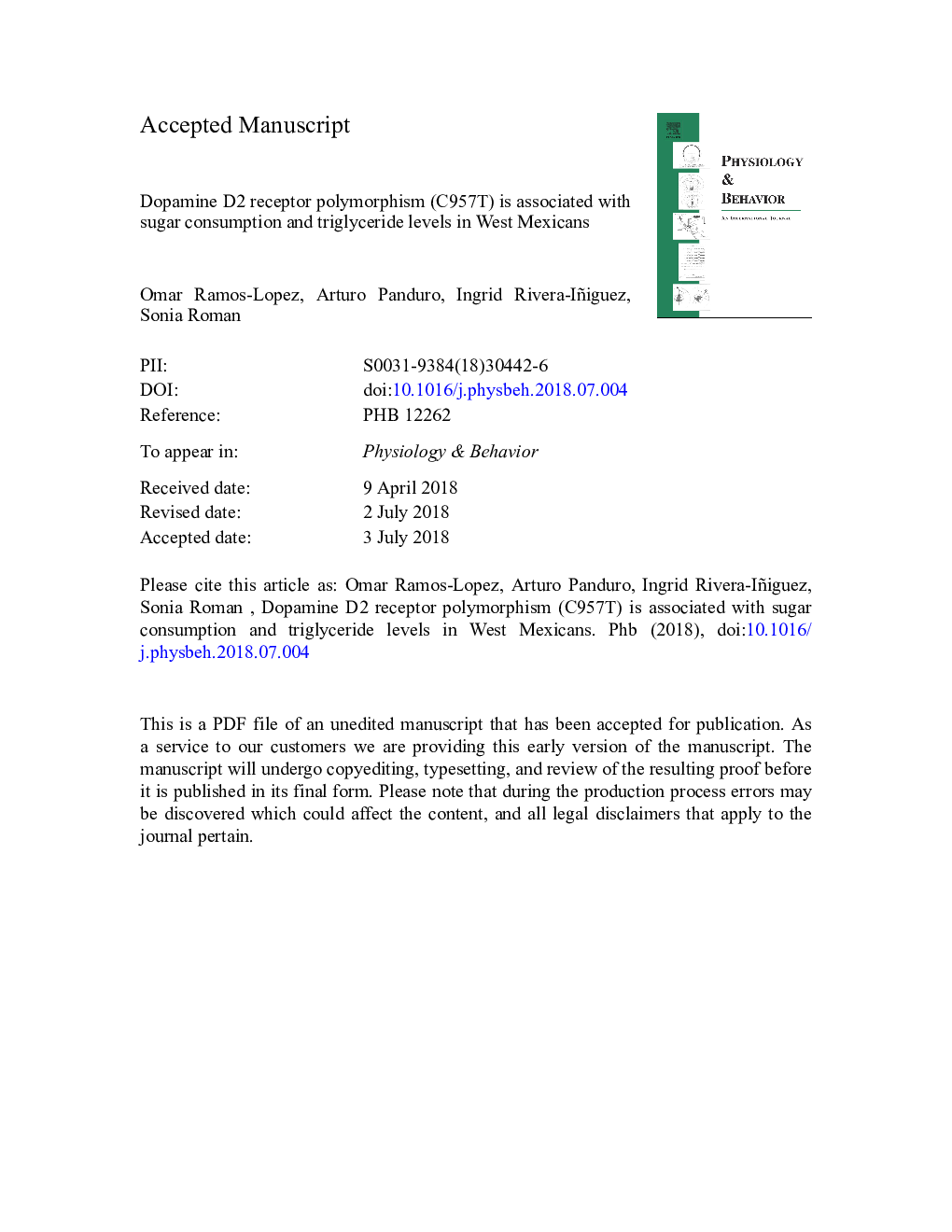| Article ID | Journal | Published Year | Pages | File Type |
|---|---|---|---|---|
| 8650341 | Physiology & Behavior | 2018 | 29 Pages |
Abstract
Genetic variations in the dopamine receptor D2 (DRD2) may alter dopamine signaling and modify the rewarding effects of food. This study aimed to analyze the association of the C957T DRD2 polymorphism with sugar consumption in West Mexican subjects. In a cross-sectional and analytical study, a total of 215 Mexican subjects were enrolled. DRD2 genotyping was performed by an allelic discrimination assay. Habitual dietary intake and the biochemical profile were evaluated. Genotype frequencies of the C957T DRD2 polymorphism were CC (12.1%), CT (40.9%) and TT (47.0%). Carriers of the CC genotype had a higher intake of sugar (g/day) than heterozygotes (67.4â¯g vs. 41.3â¯g, pâ¯=â¯0.001) and TT homozygotes (67.4â¯g vs. 45.2â¯g, pâ¯=â¯0.004). Also, the habitual consumption of soda (daily or at least 3 times per week) was more frequent among CC genotype carriers compared with heterozygotes (81% vs. 51%, pâ¯=â¯7.5â¯Ãâ¯10â6) and TT homozygotes (81% vs. 57%, pâ¯=â¯2.4â¯Ãâ¯10â4). Furthermore, the CC genotype was associated with elevated serum triglyceride levels (>150â¯mg/dL) than the CT genotype (ORâ¯=â¯2.80, 95% CI 1.08-7.24, pâ¯=â¯0.034). In conclusion, our results suggest a genetic background associated with sugar consumption among West Mexicans, which may contribute to increases in serum triglyceride levels.
Related Topics
Life Sciences
Biochemistry, Genetics and Molecular Biology
Physiology
Authors
Omar Ramos-Lopez, Arturo Panduro, Ingrid Rivera-Iñiguez, Sonia Roman,
